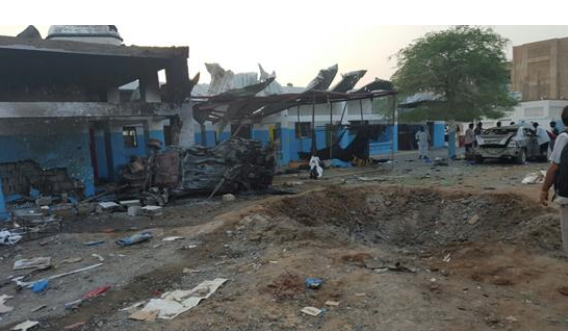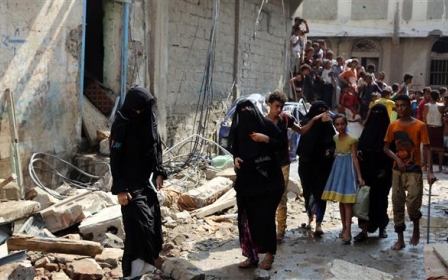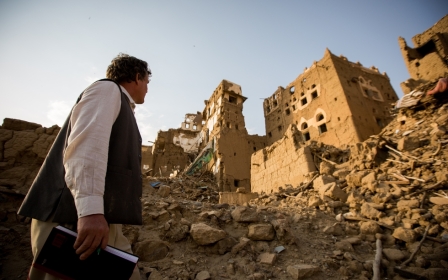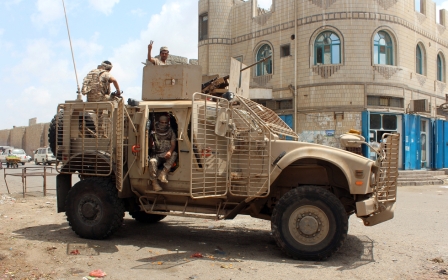Saudi raids on Yemen hospitals violated international law: MSF
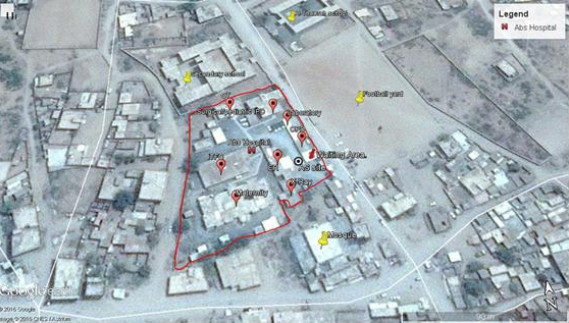
A damning report from Doctors Without Borders (MSF) has accused the Saudi-led coalition of violating international humanitarian law by repeatedly bombing its medical facilities in Yemen, forcing it to quit the country.
The report comes after the international aid organisation withdrew its teams from six hospitals in the north of the war-torn country after its health facilities were repeatedly hit, despite the group providing precise coordinates to the coalition.
A 15 August attack on Abs hospital in the rebel-held northern province of Hajja was the fifth and deadliest attack on an MSF-supported facility in Yemen, the Paris-based group said in its report.
The strike, which killed 19 people and wounded 24 others and drew international condemnation, followed air raids on nearby areas, MSF said. The charity sent out an ambulance to collect casualties from the strikes.
Warplanes from the coalition regularly bomb areas controlled by the Houthi rebels as part of its campaign launched in March 2015 in support of UN-backed President Abd Rabbuh Mansour Hadi.
A coalition plane "launched a projectile at Abs hospital without previous warning or communication with the MSF mission," the charity said.
The report found that the attack targeted a "civilian vehicle" - an ambulance - that drove into the hospital compound nearly five minutes before the air strike.
This was also confirmed by a Saudi general who spoke to MSF in Djibouti, the charity said.
Carrying patients believed to be victims of other nearby strikes, "the car was visually inspected at the gate" by a hospital guard who said that those inside "wore civilian clothes and that there were no weapons visible inside the vehicle".
The strike hit as MSF medical staff were bringing a stretcher to unload the wounded from the car.
"The blast was very powerful. It left a big crater and was felt throughout the hospital, where windows were shattered despite the blast film applied on them," it said.
"Thirteen of the deaths were due to severe shrapnel injuries, two people burned to death inside the car, one of which was a child, and partial remains were found of the remaining four casualties," MSF said.
The hospital remained empty for 11 days after the blast before it gradually resumed operations from 26 August 26.
The attack prompted MSF to evacuate its teams from six hospitals in northern Yemen, including Abs - a move that it said has "negatively impacted the availability and quality of healthcare" in the war-battered country.
"MSF had taken every possible measure to safeguard the normal medical functioning and the neutrality of the facility," it said.
The hospital was identified with large painted logos and through the communication of GPS coordinates.
It was functioning normally prior to the attack and the investigation found there had been no changes to trigger the strike while a "strict no-weapons policy was being applied".
"Thus, carrying out the attack on the hospital without any legitimate cause and without previous warning was a violation of the International Humanitarian Law rules," MSF said.
It acknowledged however that the coalition had taken "concrete and positive steps including a prompt investigation, an invitation to discuss the findings and a commitment to concrete changes".
The Arab coalition immediately announced an independent investigation into the attack but has not yet published its findings.
Last month, the coalition acknowledged "shortcomings" in two out of eight cases it had investigated of UN-condemned air strikes on civilian targets in Yemen.
More than 6,600 people have been killed since the coalition launched its intervention, most of them civilians, according to the United Nations.
MSF began working in Yemen in 1994 and ramped up its operations in the country after the civil war began in March 2015.
This forced the French NGO to scale up its operations across the country by “supporting the very weak hospital network in Yemen,” and offer care to displaced populations and to people living with chronic disease.
New MEE newsletter: Jerusalem Dispatch
Sign up to get the latest insights and analysis on Israel-Palestine, alongside Turkey Unpacked and other MEE newsletters
Middle East Eye delivers independent and unrivalled coverage and analysis of the Middle East, North Africa and beyond. To learn more about republishing this content and the associated fees, please fill out this form. More about MEE can be found here.


